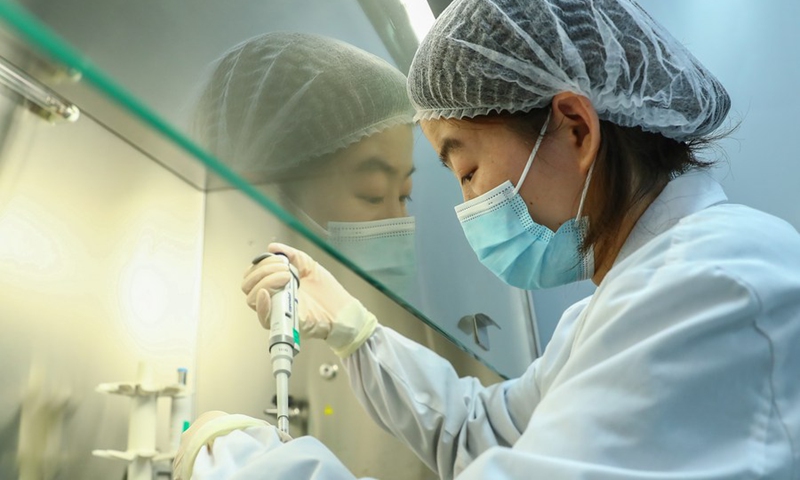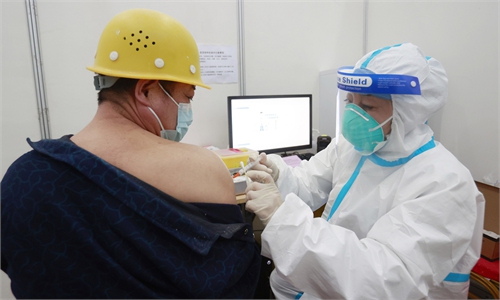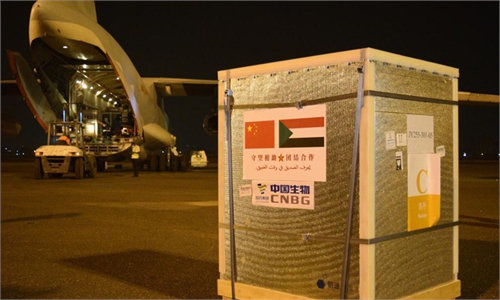
A staff member of Sinovac Biotech, a Chinese biopharmaceutical company, works in the quality inspection lab of COVID-19 inactivated vaccines in Beijing, capital of China, Dec. 23, 2020.(Photo: Xinhua)
As the world is facing a shortage of COVID-19 vaccines, some Chinese pharmaceutical companies are rushing to expand their overseas operations to meet the huge demand. But despite their global competitiveness, they still face non-commercial barriers such as political bias, analysts said on Sunday.
Chinese firm WuXi Biologics, a leader in the contract development and manufacturing organization (CDMO) sector, will likely start producing COVID-19 vaccines in Germany by the end of the year at a facility it acquired last year, media reports said on Sunday.
Aiming to extend its global network to produce COVID-19 vaccines and other products, the company reached the 150-million-euro ($177.4 million) acquisition deal with Bayer in December 2020. The facility is expected to be ready for production late 2021, the company said.
WuXi Biologics isn't the only such case. Shanghai-listed Tibet Rhodiola Pharmaceutical Holding Co has also said that its subsidiary Topridge Pharma has entered into a $9 million deal on the registration, import, production and sales of Russia's Sputnik V coronavirus vaccine in China.
Although Indian companies are still in a leading position in the CDMO sector after years of development in the generic drug field, these Chinese firms' international expansions show that they have become globally competitive in the pharmaceutical sector, Lü Mengtao, operations director of Beijing Zhimed Medical Science, told the Global Times on Sunday.
"WuXi Biologics, for example, could be taken as the Foxconn of the drugmaking sector worldwide, as it has the capacity to compete with the top five companies in the world. Many Chinese companies have achieved world-class production capacity," Lü said.
"However, due to some non-technical barriers such as some Western countries' political bias toward China, Chinese pharmaceutical companies still face challenges to expand their global business scope, which in a way is restricting the world's capacity to supply enough COVID-19 vaccines," Lü added.
As of the end of February, there were more than 10 brands of COVID-19 vaccines available on the global market. But given the huge global demand, the world is still facing a severe vaccine shortage.
During an online press conference in Geneva, WHO Director-General Tedros Adhanom warned that high demand for COVID-10 vaccines had led to shortages, as 36 countries are still waiting for doses to begin vaccination.
According to Lü, achieving a sufficient supply of vaccines involves many sectors, and global production capacity is one of the major constraints. If more Chinese companies' capacity could be added to the global total, the shortages could be eased.
"Given the shortages, some Western countries should set aside their political bias against Chinese companies and cooperate with them from a technical perspective to increase vaccine capacity," Lü added.


